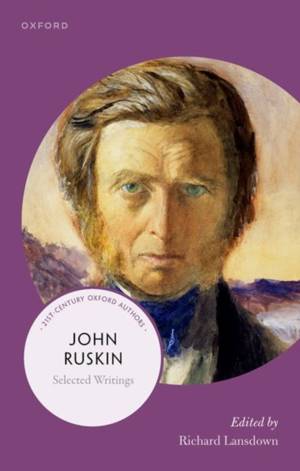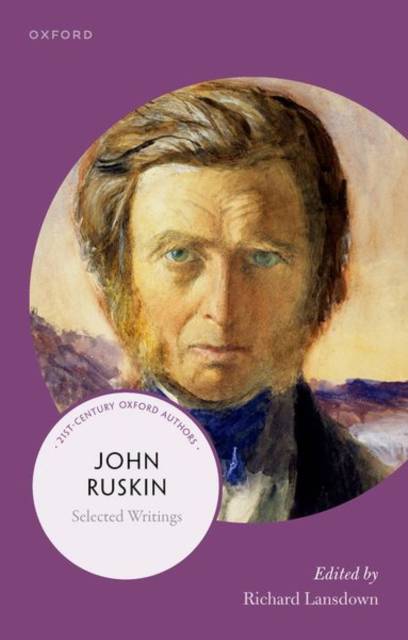
- Retrait gratuit dans votre magasin Club
- 7.000.000 titres dans notre catalogue
- Payer en toute sécurité
- Toujours un magasin près de chez vous
- Retrait gratuit dans votre magasin Club
- 7.000.0000 titres dans notre catalogue
- Payer en toute sécurité
- Toujours un magasin près de chez vous
38,95 €
+ 77 points
Description
This volume in the 21st Century Oxford Authors series offers students an authoritative, comprehensive selection of the work of John Ruskin (1819-1900). The edition represents Ruskin's extraordinary literary output, ranging from lectures, essays, and treatises to reviews, correspondence, and critical notes. Ruskin has been called 'the most powerful and original thinker of the nineteenth century' and yet, like his two fellow Victorian Sages, Thomas Carlyle and Matthew Arnold, his work remains obscure to modern readers. This anthology hopes to remedy this situation by presenting the immense range of Ruskin's interests, from art to politics, museology to ornithology, architecture to geology, and morals to economics--all of which interests were indivisible in his view. Here are rapturous accounts of Turner, the Alps, Renaissance painters, and Gothic architecture; but here, too, are urgently dystopian analyses of the modern culture that we continue to inhabit: vacuousness in communication, callousness in labour relations, amoral sophistication in art, and rationalism in all its various delusory forms in politics, society, and the economy. There are special stresses on cultural preservation and the illusions that it both fosters and depends upon; the status of women in society, which Ruskin reflected on constantly; nature, wilderness, and eco-catastrophism; and the role of artists like the Pre-Raphaelites in a society mostly given over to Philistinism. In short, the nineteenth century continues to cast an interrogatory shadow over the twenty-first, and Ruskin is its most vital and critical antagonist in the English language, inspiring intellectuals as diverse as Tolstoy, Proust, and Gandhi during his lifetime and afterwards. He was, this collection suggests, nothing like a 'sage', but something much more important and much more like those impossible things, a Victorian Renaissance man, an English Rousseau, and a post-religious Jeremiah. Explanatory notes and commentary are included, to enhance the study, understanding, and enjoyment of these works, and the edition includes an Introduction to the life and works of Ruskin, and a Chronology.
Spécifications
Parties prenantes
- Editeur:
Contenu
- Nombre de pages :
- 528
- Langue:
- Anglais
- Collection :
Caractéristiques
- EAN:
- 9780192868022
- Date de parution :
- 31-10-22
- Format:
- Livre broché
- Format numérique:
- Trade paperback (VS)
- Dimensions :
- 140 mm x 215 mm
- Poids :
- 644 g

Les avis
Nous publions uniquement les avis qui respectent les conditions requises. Consultez nos conditions pour les avis.





